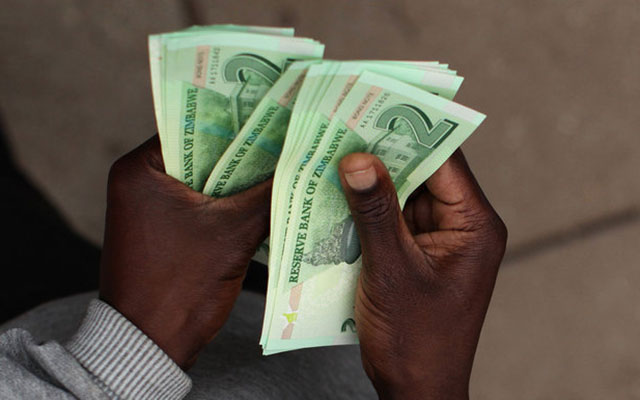Cash transfers: Odyssey of hope for the vulnerable in Binga


Under the cash transfer programme, extremely labour-constrained households receive an average of $20 bi-monthly depending
Ruth Butaumocho recently in Binga
When Mrs Emily Lunga (52) of Binga lost her husband in 2009, all her plans were thrown in disarray. With six school going children to fend for from her late husband’s meagre savings, Mrs Lunga’s future looked bleak. She had never been employed and could not imagine travelling to neighbouring Hwange or Victoria Falls to look for a job as a maid. All her hopes now lay on the arid and barren piece of land the family had been tilling for 20 years.
It was pointless to expect any help from her in laws, who were both in their early 80’s and were also expecting assistance from their youthful and buoyant daughter in law. For two years Mrs Lunga toiled fruitlessly, intermittently looking for part time jobs in the community to sustain her large family and demands which continued to increase daily.
However, despite all her efforts, the burden continued to grow, and she was increasingly becoming a community “nuisance”. It was not until 2013 that her prayers were answered. Mrs Lunga was among the first batch of beneficiaries selected for the Government’s harmonised cash transfer programme meant to cater for orphans and vulnerable children in Binga.
“I was informed by the community head that I had been selected to receive free health assistance and some money from the Government to enable me to care for my children,” she said.
She did not have to wait for long. Together with 70 other villagers who had varying challenges, Mrs Lunga got her first disbursement of $50 bi-monthly payment under the Government’s harmonised cash transfer in 2012. Up to this day, Mrs Lunga recalls the date and the weather outlook for that day when a convoy of four-wheel drive vehicles descended on her village to disburse the first allowances for the beneficiaries.
“It was a cold wintry morning, but I was sweating all over when my name was called to sign for the money.
I cried. They were tears of joy. I could not believe that I could now afford basic things like sugar and stationery for my children, who had become the scorn of the whole community,” she revealed. Mrs Lunga is among hundreds of beneficiaries of the Government initiated social cash transfer programme for extremely poor, labour-constrained household, especially the orphans and vulnerable children.
Child headed families, the disabled and the elderly also benefit from the cash transfer system so that they are able to meet their daily needs such as food, education and health services. Launched in 2012 by the Government with the assistance of donor partners, the harmonised social cash transfer programme seeks to reduce household poverty and economic disparities of approximately 55 000 extremely poor labour constrained households in identified districts across the country.
The selection was based on a poverty assessment of the districts using the data from the Poverty Assessment Study Survey of 2003 and the National Nutritional Survey of 2010. Under the cash transfer programme, extremely labour constrained households receive an average of $20 bi-monthly depending on the number of beneficiaries.
The programme was initially bankrolled to 10 districts that were considered to be the worst affected before it was extended to 10 more districts in 2013. The first 10 districts were from Mashonaland West, Mashonaland Central and Mashonaland East with the pilot project having been held in Goromonzi. Kariba and Zvimba were also incorporated in Mashonaland West whilst in Mashonaland Central Bindura and Rushinga were among the pioneering districts.
The project, which is now being run in more than 30 districts nationwide, has become an odyssey of hope to poverty stricken families. The Permanent Secretary for Public Service, Labour and Social Welfare, Mr Ngoni Masoka said the need for a harmonised social cash system arose after it emerged that there was need to increase support to orphaned and vulnerable children.
“We needed a holistic and family centred approach that addressed poverty and vulnerability dimensions for those individuals that were incapacitated and could not do anything for themselves,” he said.
He added that when the programme was started, it was targeted at a limited number of beneficiaries, who had been selected through a census of all households, followed by a poverty assessment plan.
“We however realised that we needed to include thousands of other constrained households in other districts as part of the Government’s child protection scheme,” he said.
Mr Masoka said despite the programme’s limited funding, harmonisation of social cash transfer system was a practical nexus for social services.
“The same beneficiaries also get free health services, free education for their children through the basic education assisted module (BEAM) and other amenities to ensure that the needs of the beneficiaries, particularly orphans and vulnerable children, are catered for,” he said.
Another beneficiary from Binga, Gabriel, who is visually impaired, said the cash transfer programme had enabled him to become more resilient and can now meet his family’s food requirements.
“Life was a big struggle before I started benefiting from the programme. What my family used to produce was barely enough to sustain us throughout the year. We have managed to start a small poultry project, and have also built a one-roomed brick dwelling,” he said.
The transfer has also increased the creditworthiness of hundreds of beneficiaries across the country, while enabling them to reduce casual labour, increasing work in their own fields. Despite their newly attained social status, beneficiaries worry about the lifespan of the programme.
“We do not know for how long we will continue receiving money from the Government. We need some more time so that we can improve our livelihoods,” said Mrs Lunga.
On the other hand, the Government remains mum on the duration of the programme, saying its lifespan would be determined by the availability of resources.
- Feedback:[email protected]










Comments